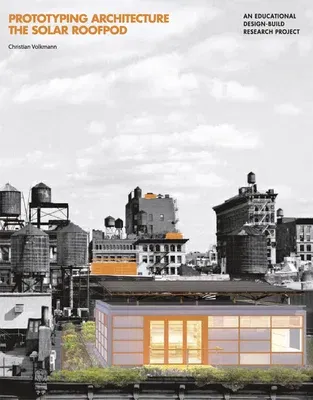Close to 75% of primary energy in New York City is used in or for
buildings. Amid the many different initiatives being implemented today
to increase energy efficiency, it is clear that it is our built urban
environment that needs the most improvement. Besides the fact that
existing buildings have to be upgraded, the forgotten, interstitial
spaces, where improvement can become architecturally tangible, should
also be addressed. The project described in this book developed from the
observation that "our most abundant energy resource is the sun and our
most underutilized urban space is our rooftops," and a successful entry
into the Department of Energy's 2011 Solar Decathlon whose goal was to
design and build a "Net-Zero-Energy" house to be exhibited on the
National Mall in Washington, DC. What if we could make use of
infrastructure developed over generations by developing the
underutilized space of apartment building rooftops to generate some of
the power for the "host-buildings" underneath, and thus immediately
renew the way we power our buildings and, beyond that, our urban way of
life? This visionary concept, documented here in comprehensive
architectural detail, became reality when a team of students from The
City College of New York took on the challenge of presenting their
vision of a built "Roofpod" prototype that could be promoted in New York
City.

